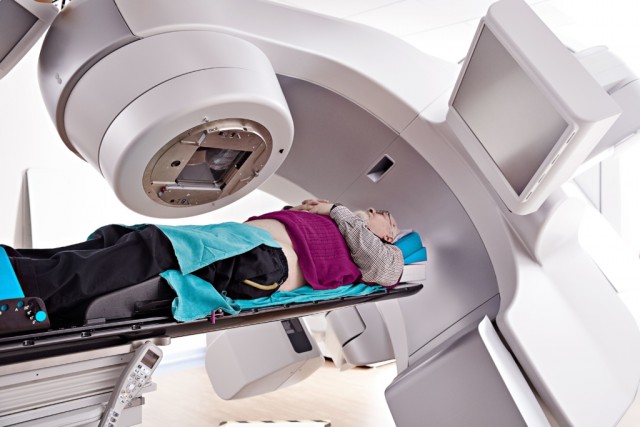Radiotherapy treatment for prostate cancer
Standard radiotherapy for prostate cancer is an important and effective treatment, but until recently involved 37 separate visits to hospital for radiotherapy doses (“fractions”). This created a major burden for patients, and pressures on NHS treatment facilities.

Can we reduce the burden for both patients and the health service?
The CHHiP trial set out to find out if the number of these visits could be reduced –making things easier for patients and hospitals alike – while still maintaining the effectiveness of the treatment.
The study recruited over 3,200 men from 71 centres across the UK to take part in the study. One-third of them were given usual treatment; one-third of them were given 20 treatments; and the remaining one-third were given 19 treatments.
The NCRI Prostate Group was a key part of the process enabling the researchers to interact effectively with centres across the UK. This legitimised the researchers efforts to introduce both hypofractionation, giving fewer radiotherapy fractions each with a higher dose, and Intensity-Modulated Radiation Therapy, where the intensity of the radiation beam is adapted to match the tumour, which were both controversial treatment options at the time.
The CHHiP trial showed conclusively that a shorter treatment schedule of just 20 fractions was just as effective in treating prostate cancer and was extremely well tolerated by patients. This meant that patients could reduce the amount of treatment they receive, and have a shorter treatment period, without an increase in side effects or changes in important outcomes.
The five-year outcomes of CHHiP were first presented the ASCO Genitourinary Cancers Symposium and published in Lancet Oncology in June 2016. The 10-year outcomes are being presented at the ASCO 2020 Genitourinary Cancers Symposium. The study was funded by Cancer Research UK and the Department of Health and sponsored by The Institute of Cancer Research being led by Prof Emma Hall’s team at the ICR Clinical Trials and Statistics Unit.
Changing the standard of care
This is now recommended as a new standard of care for men with prostate cancer. Men now receive fewer treatments with the same results, leading to less disruption to their lives, and financial savings for hospitals.
The results of this study will lead to a significant impact for both patients and the NHS, including a reduction in hospital visits, with an average saving of 17 visits per patient. This in turn will save the NHS in England at least £8 million per year.
Upskilling in radiotherapy
Crucially, the hospitals that took part in CHHiP were ‘up-skilled’ to providing highly accurate modern radiotherapy techniques, so the trial produced benefits beyond answering the specific research question. The trial has resulted in an almost immediate change in the standard of care in the UK, helping many thousands of patients and producing a major financial saving for the NHS.